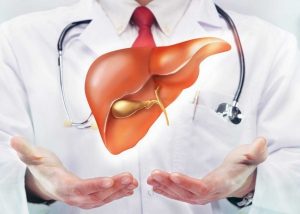Liver Transplantation
Liver transplantation or hepatic transplantation is the replacement of a diseased liver with a healthy liver from another person. Liver transplantation is a treatment option for end-stage liver disease and acute liver failure, although the availability of donor organs is a major limitation.
Your liver is your largest internal organ and performs several critical functions, including:
* Removing bacteria and toxins from the blood
* Preventing infection and regulating immune responses
* Processing nutrients, medications and hormones
* Producing bile, which helps the body absorb fats, cholesterol and fat-soluble vitamins
* Making proteins that help the blood clot

Liver transplant is usually reserved as a treatment option for people who have significant complications due to end-stage chronic liver disease. In rare cases, sudden failure of a previously normal liver may occur. The number of people waiting for a liver transplant greatly exceeds the number of available deceased-donor livers. Liver donation is possible by two ways like diseased donor and live donor. Donation of liver is monitored by government authorities.
The liver is a vital organ, meaning that one cannot live without it. The liver serves many critical functions including metabolism of drugs and toxins, removing degradation products of normal body metabolism (for example clearance of ammonia and bilirubin from the blood), and synthesis of many important proteins and enzymes (such as factors necessary for blood to clot).
Blood enters the liver from two channels, the hepatic artery and the portal vein, bringing nutrients and oxygen to liver cells, also known as hepatocytes, and bile ducts. Blood leaves the liver via the hepatic veins which drain into the inferior vena cava which immediately enters the heart. The liver makes bile, a liquid that helps dissolve fat and eliminate metabolic waste and toxins via the intestine. Each hepatocyte creates bile and excretes it into microscopic channels that join to form bile ducts. Like tributaries joining to form a river, the bile ducts join to form a single common bile duct” (CBD) that brings bile into the intestine.
Who Needs a Liver transplant?
Liver transplantation surgically replaces a failing or diseased liver with one that is normal and healthy. At this time, transplantation is the only cure for liver insufficiency or liver failure because no device or machine reliably performs all of the functions of the liver. People who require liver transplants typically have one of the following conditions.
In children, a common reason for liver transplantation is biliaryatresia in which the bile ducts that transport the bile from the liver to the gall bladder and help in digestion are under developed. In the initial few months of life a reconstructive surgery may be undertaken to correct this condition. However, some children go on to develop deep jaundice and finally liver failure.
A Liver Transplant Required for Patients Who Suffer from:
- Liver damage due to alcoholism (Alcoholic cirrhosis)
- Liver damage due to fat deposition in nonalcoholic reasons (NASH cirrhosis)
- Primary biliary cirrhosis
- Long-term (chronic) progressive virus (hepatitis B or C)
- Liver (hepatic) vein clot (thrombosis)Childbirth defects of the liver or bile ducts (biliaryatresia)
- Metabolic disorders compared with liver failure (e.g., Wilson’s disease)
Life After Liver Transplant
Liver transplant recipients undergo an extraordinary life transformation after a successful operation. They get their lives back to the point they were before they ever got sick. They can realize their full potential in life with minimal medications and restrictions. Daily follow up with the Transplant Team ensures long term success and a healthy, happy, fulfilling life.
There are several new things a person experiences after liver transplantation. Before you leave the hospital, our team will provide all the instructions you and your family will need in caring for the “new” you.
Three months after the transplant, most patients have recovered completely, returned to work, and are enjoying active lives. our aim to give expert care and excellent follow-up, working with your primary care physician, to make the extent and quality of your life appreciably better than before. We urge you and your local doctor to keep in touch with the our team to let us a partner in your ongoing care.


